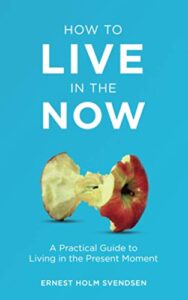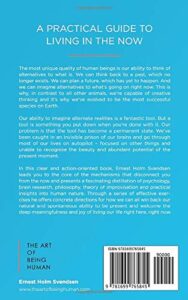Living in the present moment—a concept rooted in ancient wisdom yet backed by modern science—offers profound benefits for both mental and physical wellbeing. Far from being just a philosophical ideal, present moment awareness creates measurable changes in our bodies and minds that contribute to better health outcomes across multiple dimensions.

The Neurological Foundation of Present Moment Awareness
When we anchor our attention in the present, we activate the parasympathetic nervous system—our body’s “rest and digest” mode. This physiological state counteracts the stress response, reducing levels of cortisol and adrenaline that, when chronically elevated, contribute to inflammation, cardiovascular issues, and immune dysfunction.
Brain imaging studies show that regular present-moment practices like mindfulness meditation increase gray matter density in regions associated with attention regulation, emotional processing, and self-awareness. The anterior cingulate cortex and prefrontal cortex—areas crucial for executive function and decision-making—show enhanced connectivity and activity in those who regularly practice present-moment awareness.
Stress Reduction: The Gateway Benefit
Perhaps the most immediate benefit of present-moment living is stress reduction. When we’re fully engaged with what’s happening now, rumination about past regrets and anxiety about future uncertainties naturally subside. This mental shift has cascading effects throughout the body:
- Blood pressure normalizes as vessels relax
- Heart rate variability improves, indicating better autonomic nervous system balance
- Muscle tension decreases, particularly in the neck, shoulders, and jaw
- Digestive function improves as blood flow returns to the core
- Sleep quality enhances as the mind settles
Research from the University of Massachusetts Medical School found that participants in an 8-week mindfulness program showed a 43% reduction in psychological distress and a 46% reduction in symptoms of depression compared to control groups.
Enhanced Immune Function
The mind-body connection becomes particularly evident when examining immune function. Present moment awareness reduces the inflammatory response triggered by chronic stress. Studies published in the Annals of the New York Academy of Sciences demonstrate that mindfulness practices can increase natural killer cell activity—important immune cells that help fight viruses and cancer.
A landmark study at the University of Wisconsin found that mindfulness meditation practitioners had significantly higher antibody titers following influenza vaccination compared to non-meditators, suggesting their immune systems mounted a more robust response.
Cognitive Enhancement
Beyond physiological benefits, present moment awareness sharpens our cognitive capabilities:
- Attention span lengthens as we train ourselves to notice when the mind wanders
- Working memory capacity expands as mental resources aren’t wasted on irrelevant thoughts
- Cognitive flexibility improves as we practice shifting attention intentionally
- Decision-making becomes more measured and less reactive
- Creative problem-solving flourishes in the space created by mental clarity
A Harvard study found that people spend nearly 47% of their waking hours thinking about something other than what they’re doing, and this mind-wandering consistently correlated with unhappiness. The inverse relationship—being present correlates with contentment—highlights how our attentional focus directly affects our emotional state.
Pain Management and Resilience
Present moment awareness offers powerful tools for managing both acute and chronic pain. By bringing curious, non-judgmental attention to painful sensations, individuals can separate the physical sensation from the emotional reaction to it. This cognitive reframing doesn’t eliminate pain but transforms our relationship with it.
The renowned Mindfulness-Based Stress Reduction (MBSR) program developed at UMass Medical Center has demonstrated clinical effectiveness for chronic pain conditions, with participants reporting an average 57% reduction in pain-related distress.
Emotional Intelligence and Relationship Quality
Regular present moment practice enhances emotional awareness—our ability to recognize feelings as they arise rather than acting on them unconsciously. This emotional intelligence translates to better relationship quality:
- We respond rather than react to triggering situations
- We listen more attentively to others
- We connect more authentically when fully present
- We experience more positive emotions through deeper appreciation of simple pleasures
- We navigate conflicts with greater skill and compassion
A study in the Journal of Marital and Family Therapy found that couples who practiced mindfulness together reported significantly higher relationship satisfaction and more constructive communication patterns.
Practical Applications: Bringing Presence Into Daily Life
The beauty of present moment awareness lies in its accessibility. Formal meditation practice strengthens this capacity, but simple daily habits can integrate presence into our routines:
- Single-tasking instead of multitasking
- Taking brief “breath breaks” throughout the day
- Engaging fully with sensory experiences (truly tasting food, feeling the shower water)
- Practicing mindful movement (walking, stretching, exercise)
- Technology boundaries to prevent digital distraction
- Gratitude practices to anchor attention in appreciation
The Compounding Effect: Long-term Benefits
Like compound interest in finance, the benefits of present moment awareness grow exponentially over time. Neuroplasticity—the brain’s ability to reorganize itself—means that consistent practice creates lasting structural and functional changes.
Longitudinal studies of longtime meditators show they maintain better cognitive function with aging, experience less age-related brain atrophy, and report higher levels of subjective wellbeing into their later years. One particularly striking study from UCLA found that 50-year-old meditators had brains that appeared physiologically younger than their chronological age would predict.
A Present-Focused Path to Wellness
The evidence is clear: present moment awareness isn’t just philosophical wisdom—it’s practical health science. By training our attention to rest in the now, we access a powerful healing state that counteracts the detrimental effects of chronic stress while enhancing our capacity for joy, connection, and resilience.
The present moment is where life actually happens, where choices are made, where healing occurs, and where authentic happiness resides. By making the choice to be here now, we’re not just adopting a mental technique—we’re embracing a holistic approach to health that honors the profound interconnection between mind and body.
In a world increasingly characterized by distraction and overwhelm, the ability to return to present awareness may be the most valuable skill we can cultivate for lifelong wellbeing. The invitation is always available: to take a breath, come back to the body, and rediscover the aliveness that exists only in this moment.
Hey there! We hope you love our fitness programs and the products we recommend. Just so you know, Symku Blog is reader-supported. When you buy through links on our site, we may earn an affiliate commission at no extra cost to you. It helps us keep the lights on. Thanks.
Disclaimer: The information provided in this discussion is for general informational and educational purposes only. It is not intended as medical or professional advice. Only a qualified health professional can determine what practices are suitable for your individual needs and abilities.


